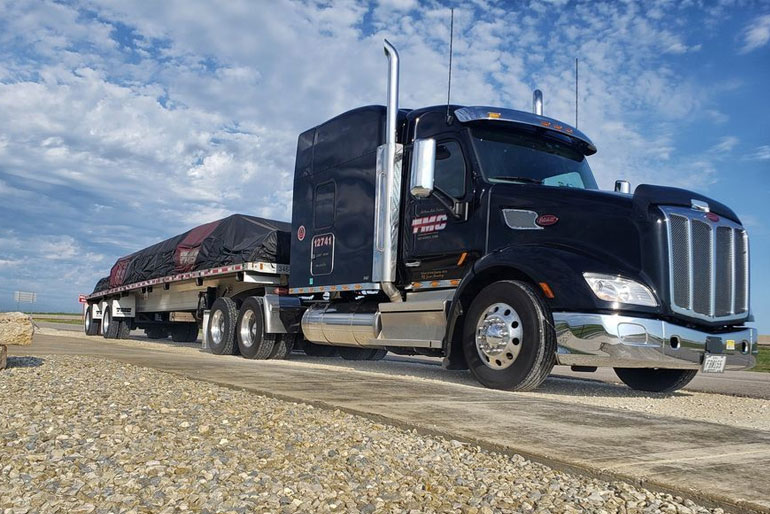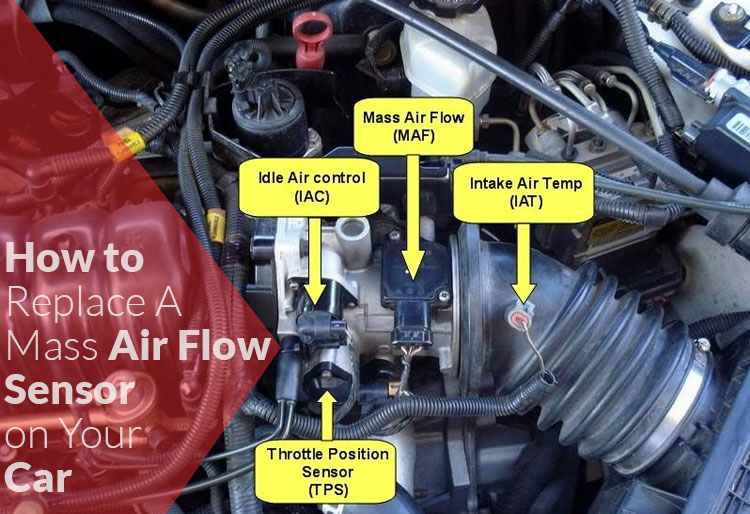Fuel efficiency is a critical concern for truck drivers and the trucking industry as a whole. As the wheels of commerce keep turning, so does the engine of a truck, and fuel costs can be a significant burden for both drivers and trucking companies. With the price of fuel constantly fluctuating, it becomes essential to adopt strategies that help optimize fuel efficiency and reduce operational costs.
In this article, we will explore how to get better gas mileage in a truck. From proper vehicle maintenance to smart driving habits and route planning, HMD will provide valuable insights to help you get the most out of every gallon of fuel. By implementing these strategies, you can not only save on fuel costs but also reduce your carbon footprint, contributing to a more sustainable and environmentally friendly trucking industry.
Proper Vehicle Maintenance
Maintaining your truck in top condition is a cornerstone of achieving better fuel efficiency. Regular maintenance checks and servicing can go a long way in ensuring your truck is running at its best. Your vehicle’s engine, tires, and brakes play a crucial role in fuel consumption. A well-maintained engine operates more efficiently, reducing the fuel needed to generate power. Similarly, properly inflated tires reduce rolling resistance, improving fuel economy, and well-functioning brakes prevent unnecessary energy loss.
Creating a maintenance schedule is a practical way to ensure you stay on top of vehicle upkeep. Regular oil changes, air filter replacements, and tuning up the engine can significantly enhance your truck’s fuel efficiency. Moreover, don’t forget to inspect your tires regularly to ensure they are properly inflated and have the correct alignment. By maintaining your vehicle meticulously, you not only save on fuel but also extend the life of your truck, reducing the need for costly replacements.
Smart Driving Habits

The way you drive can have a profound impact on your fuel consumption. Developing smart driving habits can lead to significant fuel savings. Here are some techniques to consider:
Smooth Acceleration and Deceleration: Aggressive driving with rapid acceleration and hard braking not only increases fuel consumption but also puts additional stress on your vehicle. Instead, focus on smooth acceleration and deceleration. Gradually applying the throttle and brakes conserves fuel and reduces wear and tear on your truck.
Minimize Idling: Excessive idling is a major contributor to fuel waste. Whenever possible, turn off your engine when parked or waiting for extended periods. Idling for more than a minute consumes more fuel than restarting the engine. Modern trucks are equipped with efficient starters, making frequent restarts more economical.
Maintain a Consistent Speed: Speed variations can impact fuel efficiency. Driving at a consistent speed can help optimize fuel consumption. Cruise control can be a valuable tool in maintaining a steady pace, especially on long stretches of highway.
Reduce the Need for Heavy Braking: Plan your driving to avoid sudden stops and heavy braking. Anticipate traffic conditions and adjust your speed accordingly. Reducing the need for heavy braking not only saves fuel but also enhances safety.
By adopting these driving habits, you can significantly reduce fuel consumption and operating costs. It’s important to remember that your driving style directly influences the fuel efficiency of your truck. Being mindful of your actions behind the wheel can lead to substantial savings and improved performance.
Route Planning And Navigation
Efficient route planning is another key aspect of fuel efficiency. Choosing the right route can make a substantial difference in fuel savings. Inaccurate or outdated navigation can lead to unnecessary detours, congested roads, and additional mileage. To optimize your route, consider the following:
GPS Navigation Systems: Invest in a GPS navigation system specifically designed for truckers. These systems take into account factors like truck size, weight, and height to offer routes suitable for your vehicle. They also provide real-time traffic updates, helping you avoid congestion and delays.
Optimize for Fuel Efficiency: When planning your route, look for paths that offer fuel stops at convenient intervals. Long stretches without refueling options can force you to carry extra fuel weight, reducing efficiency. Additionally, choose routes that minimize elevation changes, as climbing steep hills consumes more fuel.
Consider Alternate Routes: Sometimes, less-traveled routes can be more fuel-efficient, as they avoid heavy traffic and congestion. Explore alternate paths that may save you time and fuel.
Proper Cargo Management
The way you load and manage your cargo can have a substantial impact on your truck’s fuel efficiency. Carrying heavy or poorly distributed cargo can increase fuel consumption. Here’s how to optimize your cargo management for fuel savings:
Weight and Distribution: Every truck has a maximum weight capacity, and exceeding it not only poses legal issues but also increases fuel consumption. Ensure that your cargo weight is within the recommended limits. Additionally, evenly distribute the weight of your cargo to maintain balance and stability, reducing the need for additional fuel to compensate for uneven loads.
Cargo Securement: Properly secure your cargo to prevent shifting during transit. Loose or shifting cargo can affect your truck’s balance and handling, leading to increased fuel consumption and potential safety hazards.
Invest in Efficiency Equipment: Consider investing in fuel-efficient equipment, such as side skirts and trailer tails. These technologies can help reduce aerodynamic drag, leading to fuel savings. While there is an upfront cost, the long-term savings can be substantial.
Load Optimization: When planning your route, consider combining multiple deliveries into a single trip whenever possible. Reducing the number of trips and maximizing your cargo capacity can lead to fuel efficiency and cost savings.
Proper cargo management not only contributes to fuel efficiency but also enhances safety and compliance with regulations. When your cargo is managed efficiently, you can expect better performance and savings on fuel costs.
Idling Reduction Technology

Idling—keeping the engine running while stationary—consumes fuel and contributes to unnecessary emissions. Thankfully, idling reduction technologies are available to help mitigate this issue:
Auxiliary Power Units (APUs): APUs are devices that provide heating, cooling, and power without running the main engine. They are particularly useful during rest breaks and overnight stops. By using an APU, you can maintain a comfortable cabin environment without idling the engine, saving both fuel and wear on your truck.
Engine Start-Stop Systems: Some modern trucks come equipped with start-stop systems that automatically turn off the engine when the truck is stationary and restart it when needed. This technology can significantly reduce idling and improve fuel efficiency.
Idle Time Monitoring: Many telematics systems offer idle time monitoring, providing real-time data on your idling habits. This data can help you identify areas where you can reduce idle time and make more fuel-efficient choices.
By adopting idling reduction technologies and practices, you can reduce fuel consumption and minimize environmental impact while keeping your comfort and convenience.
Fuel-Efficient Equipment And Technologies
The trucking industry continues to evolve, and innovations in technology and equipment play a crucial role in improving fuel efficiency. Here are some advancements to consider:
Aerodynamics: Many modern trucks are designed with aerodynamics in mind. These streamlined designs reduce wind resistance, improving fuel efficiency. Features like roof fairings and side skirts can make a substantial difference in how your truck handles air resistance.
Fuel-Efficient Tires: Investing in fuel-efficient tires can be a wise choice. These tires are designed to reduce rolling resistance, which is a significant factor in fuel consumption. While they may have a slightly higher upfront cost, the long-term savings are worth it.
Engine Technologies: Keep an eye on advancements in engine technology. Many manufacturers are producing engines that are more fuel-efficient while maintaining performance. Consider upgrading to more fuel-efficient engine models when it’s time to replace your truck.
Telematics Solutions: Telematics systems can provide real-time data on your truck’s performance and fuel consumption. By analyzing this data, you can identify areas for improvement and make adjustments to optimize fuel efficiency.
Hybrid and Electric Trucks: While hybrid and electric trucks are still emerging in the market, they are worth exploring, especially for short-haul and urban delivery routes. These vehicles offer the potential for significant fuel savings and reduced emissions.
By staying informed about the latest developments in fuel-efficient equipment and technologies, you can make strategic choices that lead to cost savings and environmental benefits.
Driver Training And Education
An often overlooked but crucial aspect of fuel efficiency is driver training and education. The way you drive can have a significant impact on fuel consumption, and proper training can instill fuel-efficient habits. Here’s how to approach this:
Driver Education Programs: Many trucking companies offer driver education programs focused on fuel efficiency. These programs teach drivers how to drive in ways that conserve fuel and minimize wear and tear on the truck.
Safe and Fuel-Efficient Driving: Driver training programs emphasize the importance of safe and fuel-efficient driving habits. They cover topics like smooth acceleration and deceleration, minimizing idling, and smart route planning.
Ongoing Training: Driver education should be an ongoing process. Encourage drivers to stay updated on best practices and new technologies that enhance fuel efficiency.
By investing in driver training and education, you can empower your team to make fuel-efficient choices and improve the overall performance of your fleet.
Monitoring And Telematics
Real-time monitoring of your truck’s performance is an invaluable tool for optimizing fuel efficiency. Telematics systems provide data and insights that can help you make informed decisions. Here’s how to make the most of these technologies:
Telematics Systems: Telematics solutions combine GPS, vehicle sensors, and connectivity to provide a comprehensive view of your truck’s operations. These systems offer data on fuel consumption, engine performance, driver behavior, and more.
Real-Time Feedback: Many telematics systems offer real-time feedback to both drivers and fleet managers. This feedback can include alerts on excessive idling, speeding, and other behaviors that impact fuel efficiency.
Performance Metrics: Telematics systems provide performance metrics that allow you to track fuel consumption trends over time. This data is valuable for identifying areas where you can make improvements.
Maintenance Reminders: Telematics can also help you keep track of maintenance schedules, ensuring that your truck is in peak condition for fuel-efficient operations.
By utilizing telematics, you can gain insights into your fleet’s performance, identify areas for improvement, and make data-driven decisions to enhance fuel efficiency.
Conclusion
Effective fuel-efficiency strategies for truck drivers are not only good for your bottom line but also for the environment. By implementing a combination of proper vehicle maintenance, smart driving habits, efficient route planning, cargo management, idling reduction technologies, and staying informed about fuel-efficient equipment, you can make a significant impact on your operational costs.
Driver training and education play a crucial role in ensuring that these strategies are consistently applied. Ongoing training and the adoption of telematics systems provide the tools and knowledge needed to make informed decisions for better fuel efficiency.
In the trucking industry, where every gallon of fuel counts, implementing these strategies can lead to cost savings, reduced emissions, and a more sustainable future.







